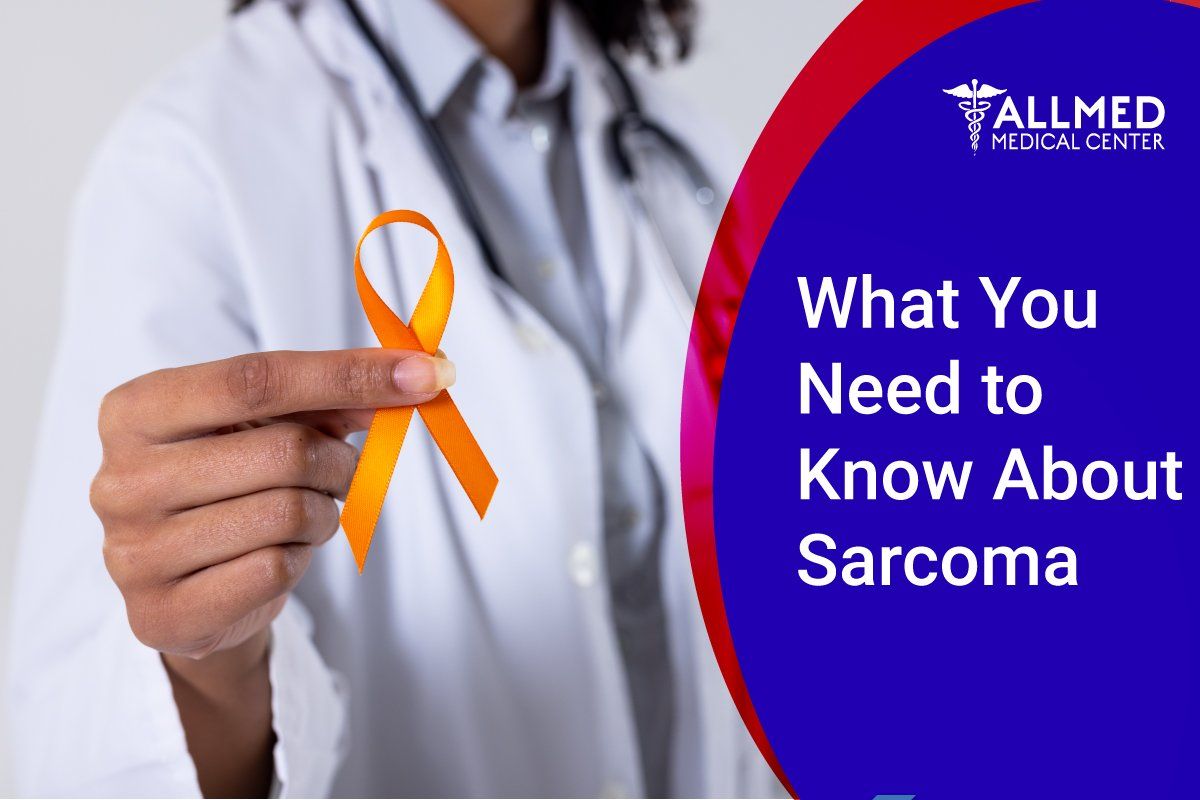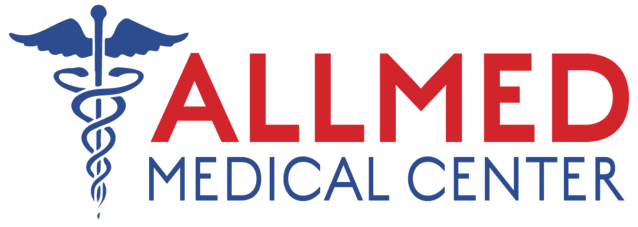
We Proudly Accept Medi-Cal and Medicare
Write your caption hereButton
Now Accepting Walk-ins!
Write your caption here

We Proudly Accept Medi-Cal and Medicare
Write your caption hereButton
Now Accepting Walk-ins!
Write your caption here

Sarcoma and Cancer
Anyone can develop cancer at any given point in their lives. It can affect men, women, and children regardless of age and ethnicity. With that in mind, it is vital to learn everything about cancer, even the rare types. One such type of cancer is a sarcoma. Sarcoma can affect multiple parts of the body. If left untreated, it can be life-threatening. In the spirit of this month's sarcoma awareness campaign, we created this blog post to provide you with relevant information about sarcoma.
We'll discuss sarcoma's definition, types, and its signs and symptoms. In addition, we'll also provide you with management tips. So, if you're ready to learn what you need to know about sarcoma, let's jump in.
What is Sarcoma?
A sarcoma is one of the rarest types of cancer. It is a malignant or cancerous tumor that typically develops in the bone or soft tissues. These tumors can be found in the following:
- Bones
- Muscles
- Tendons
- Cartilages
- Fat
- Nerves
- Blood vessels
Types of Sarcoma Cancer
Over 70 types of sarcoma tumors could affect several parts of your body. However, we confined our research only to the most common types reported by individuals with the disease.
Bone Sarcoma
This type of sarcoma primarily affects the bones. Research says that approximately 35 percent of sarcomas affect individuals under 35. Many of these cases are in children.
Osteosarcoma
Osteosarcoma is a common type of sarcoma that could affect the bones of teenagers. It typically develops in the arms or legs. The affected areas include
- Tibia (bones in your shin)
- The femur (bones in your thigh)
- Humerus (bones in your upper arm)
- Abdomen or chest (rare)
Less Common Affected Areas
- Skull
- Jaw
- Pelvis
Symptoms
Sarcoma symptoms differ based on the affected part of the body. Below is a compilation of the common signs that a person with osteosarcoma could experience.
- Pain and tenderness in the bones
- Growth of a mass or lump in the affected area (tumor)
- Inflammation and redness in the affected area
- Escalated pain when lifting
- Limping
- Mobility limitations
- Sudden and unexplained fever
- A broken bone that results in injuries
Treatment
There are multiple approaches to treating osteosarcoma. We've listed some of them below.
- Surgery
- Chemotherapy
- Radiation therapy
- Targeted medication therapy
- Cryosurgery
- Amputation
- Rotationplasty
The treatment depends on the affected area of your body. Doctors will explain your best options during the procedures.
Soft Tissue Sarcoma
This type of sarcomas begins at the connective body tissues in your body. It is also a common type reported by researchers worldwide. In contrast to bone sarcomas, where the disease is most common in children, soft tissue sarcomas primarily affect adults.
Angiosarcoma
Angiosarcoma is very rare. This type of sarcoma commonly affects your blood vessel's inner linings. Since angiosarcoma starts from the blood vessels, it can potentially develop in any part of your body. The affected areas include
- Skin
- Breasts
- Liver
- Head
- Neck
Symptoms
The sarcoma cancer symptoms vary. It depends on the affected area of your body. Below are some examples.
Skin Angiosarcoma
Reddish or bluish nodules that easily bleed. It could appear on your scalp, neck, or head.
Liver Angiosarcoma
Persistent pain in your upper right abdomen. You may also experience jaundice and fatigue.
Breast Angiosarcoma
Skin discoloration (purplish nodules). You may also have lumps that vary in size in your breasts.
Sarcoma Treatment
Modern medicine provides doctors with many ways to treat angiosarcoma. Although it can potentially spread faster to other parts of your body, your doctor has many ways to manage it. The treatment includes
- Surgery
- Chemotherapy
- Radiation Therapy
Your doctor may suggest chemotherapy and radiation therapy following the surgery. This approach is called
adjuvant therapy.
The procedure will vary depending on the affected area, your age, and the severity of the disease.
Sarcoma Causes and Risk Factors
Here are the possible scenarios that could increase your risks of developing sarcoma.
Radiation Exposure
Prolonged exposure to solid radiations increases the risks of sarcoma development. It includes radiation from previous cancer treatment.
Chemical Exposure
Prolonged or accidental chemicals may also cause the development of sarcoma. These harmful chemicals include arsenic, herbicides, and wood preservatives.
Genetic Abnormality
Abnormal genetic or chromosome mutations may also cause sarcoma. Some cases are hereditary.
Helpful Tips
It is challenging to deal with cancers, including sarcomas. On the other hand, there are still ways to cope with this disease. Here are some of the tips that we've compiled.
Eat Healthy Foods
Eating only healthy foods can help you recover faster.
When dealing with cancer, your body needs to absorb all the essential vitamins and minerals. In addition, healthy foods will also boost your immune system naturally.
Exercise and Physical Activities
Exercising and being physically active can lower cancer risks, including sarcomas. You can also enjoy other health benefits, such as maintaining your ideal weight, increased mobility, and a healthy respiratory system. Moreover, these activities are suitable for the heart too.
Avoid Smoking and Alcoholic Beverages
Smoking and drinking alcoholic drinks can complicate health conditions like sarcomas. What's more, it reduces the effects of sarcoma treatment.
Stay Healthy and Live Life to The Fullest
Living with an adverse health condition like sarcoma can affect your physical and mental well-being. Don't worry. AllMed Medical Center is here for you. Our primary care physicians offer accurate testing to help detect the early signs of sarcoma. We also have specialists to provide you with the proper treatment based on your specific needs.
Talk to our health professionals today by dialing 1-833-255-6332. Book an appointment by clicking this
link.
AllMed Medical CentersServing
Greater Sacramento
Allmed Medical Center | All Rights Reserved.










